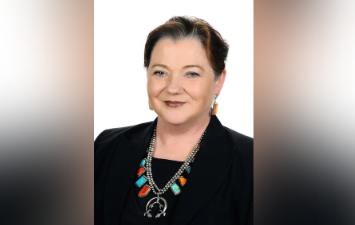ATLANTA – The James and Carolyn McAfee School of Theology will welcome Dr. Nancey Murphy, senior professor of Christian philosophy at Fuller Seminary in Pasadena, California, for the ninth annual D. Perry and Betty Ginn Lectures on Christian Faith and Modern Science.
The lectures will take place Sept. 19-20 on the Cecil B. Day Graduate and Professional Campus in Atlanta.
Dr. Murphy's research focuses on the role of modern and postmodern philosophy in shaping Christian theology, on relations between theology and science, and on neuroscience and philosophy of mind.
“Issues regarding theology's relationship to science influence almost every aspect of life in our culture. And no one is better prepared to speak to these issues than Dr. Nancey Murphy,” said Dr. Jeff Willetts, dean of McAfee School of Theology. “McAfee is proud to welcome her to our campus so that we may join in this important cultural and intellectual dialogue.”
Dr. Murphy will deliver two lectures, both free of charge and open to the public, in Cecil B. Day Hall.
The first, titled “Myth of the Science and Religion Wars: Why it Matters for Theology Students,” will begin at 7 p.m. on Sept. 19. This lecture will address some misconceptions concerning the two most often mentioned “battles” between the church and science: the Galileo affair and Christian reactions against Darwin.
The second, titled “Does Neuroscience Teach that We Have no Souls?,” will be held on Sept. 20 at 11 a.m. This lecture will address what some, both Christians and nonbelievers, see as a new locus of conflict, that between Christians' predominantly dualist concept of human nature and the central assumption of the cognitive neurosciences that we are purely physical organisms.
Dr. Murphy received her Ph.D. in philosophy of science from U.C. Berkeley and her Th.D. from the Graduate Theological Union. Her first book, Theology in the Age of Scientific Reasoning, won the American Academy of Religion Award for excellence. She is author of eight other books and co-editor of 12, and serves as an editorial adviser for numerous publishers and journals.
Dr. Murphy is highly sought as a speaker at national and international conferences on philosophy and the relationship between theology and science. She serves on the board of the Center for Theology and the Natural Sciences, Berkeley, and is a member of the planning committee for conferences on science and theology sponsored by the Vatican Observatory. She is an adjunct professor at the International Baptist Theological Seminary in Prague, and is an ordained minister in the Church of the Brethren.
The D. Perry and Betty H. Ginn Lectures in Christian Faith and Modern Science were endowed by the Rev. Dr. D. Perry Ginn to encourage a deeper understanding of science by clergy and students and how it relates to the Biblical revelation.
For more information, contact Diane Frazier at (678) 547-6470 or frazier_d@mercer.edu.
About McAfee School of Theology
McAfee School of Theology at Mercer University forms Christian leaders whose practice and scholarship, empowered by their passion for God and neighbor, change lives and transform communities. The School accomplishes this mission by: 1) integrating spirituality with service through: practicing spiritual disciplines that nurture us for Christian service; embracing ethnic, gender and theological diversity to enhance our spiritual growth and moral formation; creating opportunities to learn in community, experience transformation and risk action; 2) integrating theological inquiry with prophetic vision through interpreting the story of the Christian faith through sacred scriptures and traditions; connecting faith to global contexts in ways that engage personal, communal and political realities; critiquing the structures of our society from an informed prophetic voice; 3) integrating worship with witness through celebrating God's presence in worship as the source of the Church's call to community and global transformation; reading cultural contexts to create holistic strategies for ministry; proclaiming the love of God in Jesus Christ through dialogue and in partnership with others.










